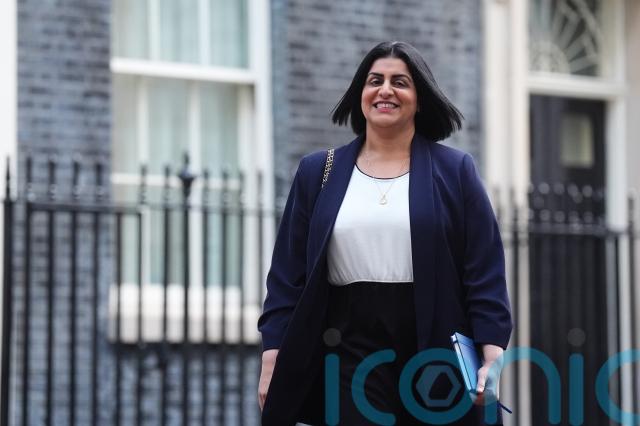
Net migration has dropped further to the lowest annual figure since 2021, new estimates suggest.
Net migration – the difference between the number of people moving long-term to the country and the number of people leaving – has been on a downwards trend for the past two years.
Latest figures published on Thursday show the number dropped to 204,000 in the year to June 2025, down 69% year-on-year from 649,000, according to the Office for National Statistics (ONS).
An estimated 898,000 people immigrated to the UK in the year to June while 693,000 emigrated.
Net migration peaked at a record 944,000 in the year to March 2023 but has fallen sharply since then.
The decrease in net migration is being driven by fewer people from outside the EU arriving in the UK for work or to study, along with an increase in people moving out of the country, the ONS said.
Mary Gregory, executive director for population and Census at the ONS, said: “Net migration is at the lowest level seen since 2021, when pandemic lockdown restrictions were lifted and the new immigration system was introduced following the UK’s EU exit.
“Non-EU-plus emigration is driven by Indian and Chinese nationals, who originally arrived on study visas, while nine out of 10 British people emigrating are of working age.”
The lower estimates follow the introduction in early 2024 by the previous Conservative government of restrictions on people eligible to travel to the UK on work or study visas.
The Labour Government has also announced further plans aimed at reducing migration to the UK, including for “earned” settlement and a doubling of the wait time for migrants to be able to apply for indefinite leave to remain from five to 10 years.
There would also be conditions migrants need to meet, such as having a clean criminal record and speaking English to A-level standard, and they could be fast-tracked or forced to wait longer depending on their “contributions” to the UK.

Home Secretary Shabana Mahmood said: “Net migration is at its lowest level in half a decade and has fallen by more than two-thirds under this Government.
“But we are going further because the pace and scale of migration has placed immense pressure on local communities.
“Last week, I announced reforms to our migration system to ensure that those who come here must contribute and put in more than they take out.”
Reacting to the figures, shadow home secretary Chris Philp said the fall was driven by Conservative reforms “but we need to go much further”.
He said: “Under a future a Conservative government, only those who make a real contribution can stay permanently, and only British citizens will be eligible for benefits funded by British taxpayers.”
The ONS figures also showed more British nationals are estimated to have left the UK in the year to June 2025 (252,000) than moved to the country (143,000).
It was a similar picture for EU-plus nationals – covering the 27 EU countries plus Norway, Iceland, Liechtenstein and Switzerland – with a higher number emigrating from the UK (155,000) than immigrating (85,000).
The negative net migration for these two categories of people was offset by positive net migration for non-EU-plus nationals, with a larger number moving long-term to the UK (670,000) than leaving the country (286,000).
There have been notable changes in migration levels for non-EU-plus nationals, however.
The number of these people arriving in the UK has fallen 37% year on year, while the number leaving has risen by 20%.
Today, we’ve released the latest provisional estimates of long-term international migration to the UK in the year ending June 2025. pic.twitter.com/h2ImW4EwnM
— Office for National Statistics (ONS) (@ONS) November 27, 2025
Director of think tank British Future, Sunder Katwala, described the latest net migration estimate as “another significant drop” but research shows the public still think immigration is going up.
New polling by Ipsos and British Future suggests 56% of the public think net migration increased last year, despite the number falling.
“It is time that our immigration debate caught up with reality,” Mr Katwala said.
“Some voices will never be satisfied until immigration is net zero – but they can’t claim to speak for most of the public. With numbers returning to pre-Brexit levels, we need an immigration politics for 2025 and beyond.”
Subscribe or register today to discover more from DonegalLive.ie
Buy the e-paper of the Donegal Democrat, Donegal People's Press, Donegal Post and Inish Times here for instant access to Donegal's premier news titles.
Keep up with the latest news from Donegal with our daily newsletter featuring the most important stories of the day delivered to your inbox every evening at 5pm.